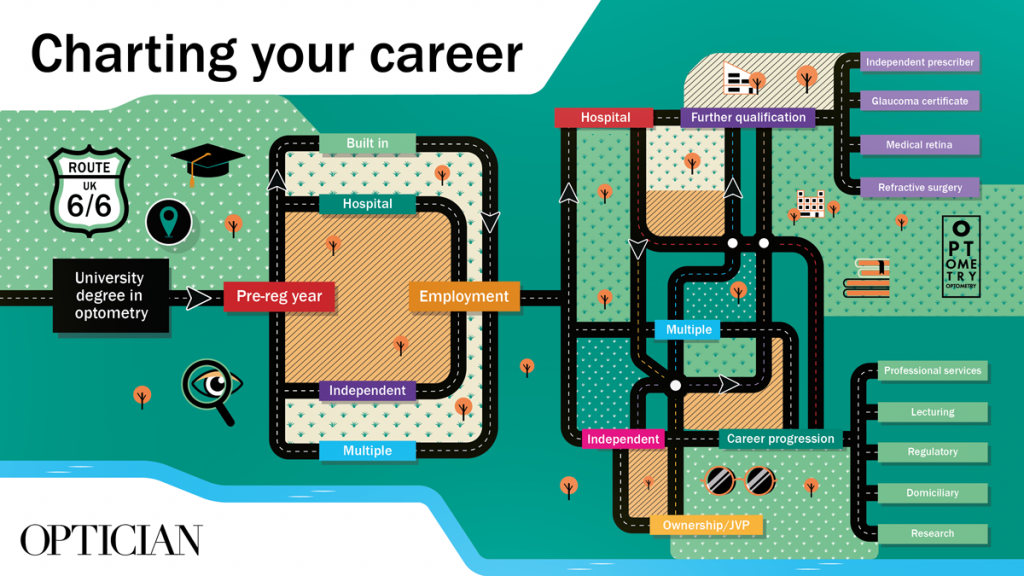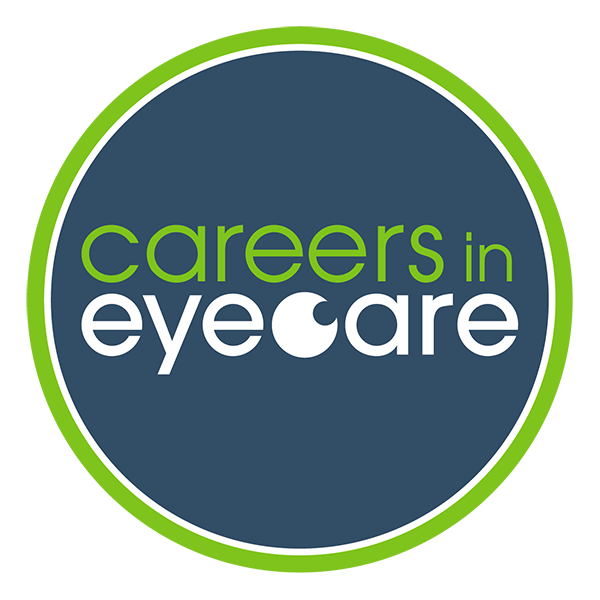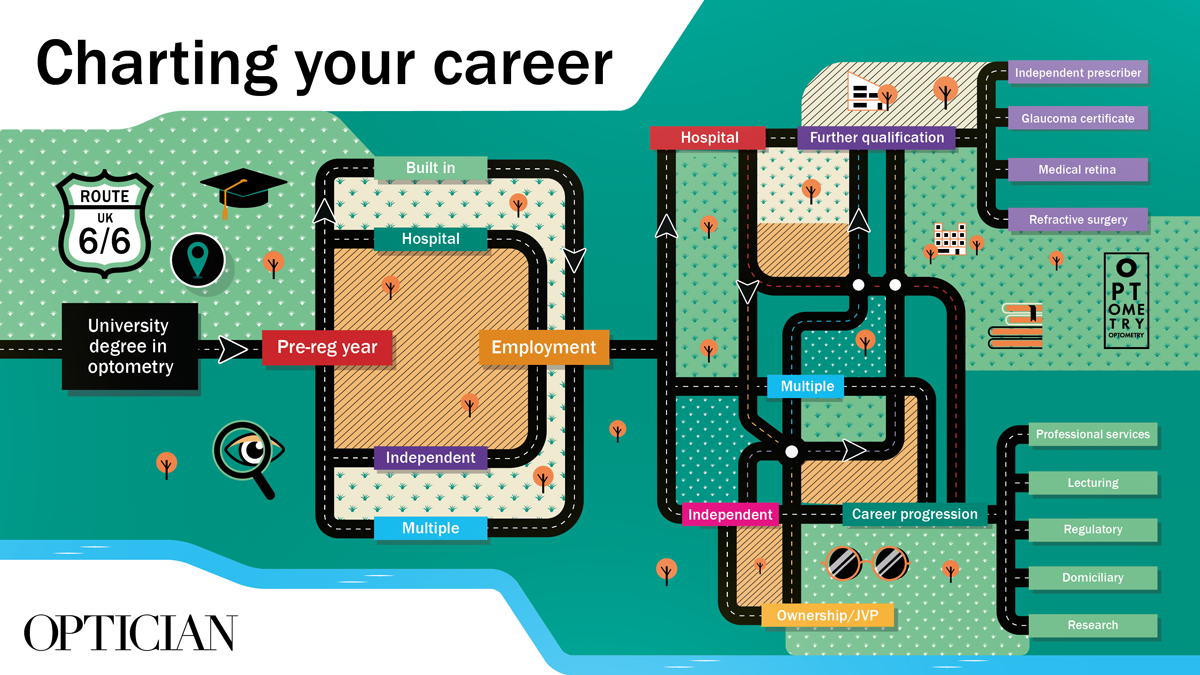So you are a newly qualified optometrist – or maybe you are on track to qualify soon. It’s easy to focus on your pre-reg year and passing your exams but have you thought about what comes next? Read on for ideas for your career and different pathways you could follow, from low vision and paediatrics to research, higher qualifications and owning your own business.
You may want to build up your in-practice experience. If you have worked in a multiple, why not try working for an independent and vice versa. Alternatively have you thought about working for the Hospital Eye Service. There are also roles for optometrists working for companies providing cataract surgery and laser eye surgery, all of which could appeal if you like the more clinical side of work.
Some optometrists like to specialise in working with children or people with low vision. If this might appeal, why not look for a specialist practice in your area and ask if you could sit in on a clinic and see what it would be like to work with a certain group of patients all the time. You may then decide to follow up your interest with a specialist course in low vision for optometrists.
Have you thought about getting into research? If you are interested in pushing forwards the boundaries in lens design, or want to make life better for patients, research night be for you. You will need to complete a doctorate, and you could then look for a research assistant post in a university or working for a company. Read about a day in the life of clinical research optometrist Paulina here.
You could choose a further or higher qualification from the College of Optometrists. More and more optometrists are exploring the benefits of a qualification in independent prescribing.
Qualifying in independent prescribing brings new opportunities for you and your practice. Optometrists with an independent prescribing (IP) qualification are able to clinically assess a patient, establish a diagnosis, determine the clinical management required and prescribe where necessary. Once qualified you may prescribe any licensed medicine (except for controlled drugs or medicines for parenteral (injected) administration) for conditions affecting the eye, and the tissues surrounding the eye, within your recognised area of expertise and competence. You will be able to prescribe privately and, where suitable arrangements have been made, write an NHS prescription.
Completing a higher qualification gives you an in-depth understanding of the conditions you deal with every day in practice. You will develop new skills and knowledge so you can provide new patient services or take up new career opportunities.

Higher qualifications reflect the latest research and thinking on key topics and conditions, enabling you to provide the highest standards of patient care. The College of Optometrists offers courses in five essential subject areas: Contact lens practice , Glaucoma, Low vision, Medical retina, and Paediatric eye care. Courses are available at certificate, higher certificate and diploma level.
Alternatively you may be more interested in management or owning your own practice. You can download a copy of the Independent Practice Guide here. This is an eBook developed by the AOP and ABDO which covers key issues from business planning and finance through to staff management and marketing. You might alos want to look out for the Become an Independent Optician event from ABDO which is held annually. And why not develop your management skills with Management and Leadership Training?
As you will see there are lots of opportunities for optometrists. Share your ideas in the comments below – and good luck, whatever path you take.


[…] Your career path as an optometrist […]